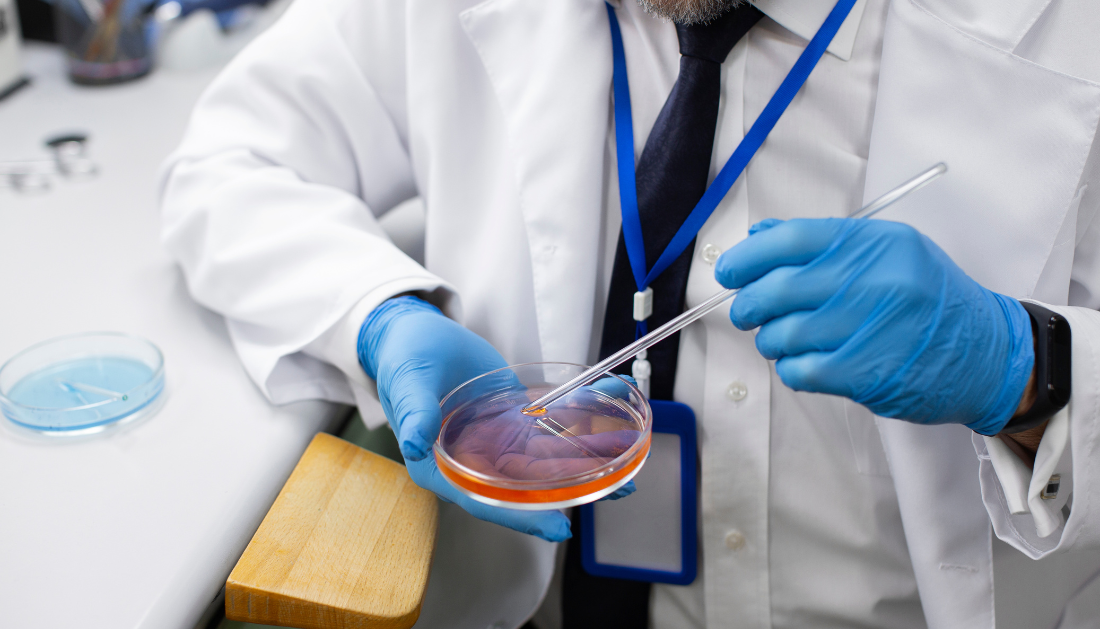

Researchers have developed a novel way to combating obesity that targets fat absorption in the small intestine. The cutting-edge nanoparticle approach, designed to deliver therapeutic compounds directly to the digestive tract, has demonstrated promising results in preventing diet-induced obesity.
The work, presented at UEG Week 2024, focuses on an enzyme known as Sterol O-acyltransferase 2 (SOAT2), which is important for fat absorption in the small intestine. By blocking this enzyme in the small intestine, the study provides a possible therapeutic method for reducing fat absorption and perhaps preventing obesity.
Despite significant research into fat metabolism, effective inhibitors of intestinal fatty acid uptake have yet to be identified.
“For years, researchers have studied fat metabolism, but finding an effective way to block fat absorption has been difficult. While most strategies focus on reducing dietary fat intake, our approach targets the body’s fat absorption process directly.”- Dr. Wentao Shao, Study Lead Researcher, PhD Student, Center of Gallstone Disease, Shanghai East Hospital, Tongji University
The research team created a unique delivery system based on nanoparticles, consisting of a tiny capsule with a polymer core and a protective shell. The technique was designed to efficiently transport small interfering RNAs (siRNAs) to the small intestine, where they can diminish SOAT2 expression and prevent fat absorption. In mouse models, animals treated with nanoparticle treatment absorbed less fat and avoided obesity, even when fed a high-fat diet.
“This oral treatment offers several advantages”, said Dr Shao. “It’s non-invasive, has low toxicity, and it has high potential for better patient compliance compared to current obesity treatments, which are often invasive or difficult to maintain. This makes it a promising alternative.”
The study also revealed the fundamental mechanism by which SOAT2 controls fat absorption. Inhibition of SOAT2 in the small intestine causes degradation of CD36, a protein responsible for fat transfer. This mechanism requires both cellular stress and the engagement of the E3 ligase RNF5, an enzyme that promotes CD36 degradation.
Previous research has demonstrated that inhibiting hepatic SOAT2 causes fat buildup in the liver, 5,6, whereas this intestine-specific strategy avoids that risk, providing a safer and more targeted treatment for obesity.
Professor Zhaoyan Jiang, study supervisor, explained, “One of the most exciting aspects of this therapy is its ability to target fat absorption in the intestines without affecting the liver. This is important because previous studies showed that blocking SOAT2 in the liver can lead to fat buildup there – a risk our treatment avoids by focusing only on intestinal SOAT2.”
Looking ahead, the study team intends to test the nanoparticle system in larger animal models to ensure its efficacy and safety for human usage.
“We believe that this nanoparticle system represents a breakthrough in obesity management, offering a new solution that tackles both fat metabolism and diet-related weight gain, potentially ushering in a new era of more effective treatments”, Professor Jiang concluded.
Source Link: United European Gastroenterology
more recommended stories
 Phage Therapy Study Reveals RNA-Based Infection Control
Phage Therapy Study Reveals RNA-Based Infection ControlKey Takeaways (Quick Summary) Researchers uncovered.
 Safer Allogeneic Stem Cell Transplants with Treg Therapy
Safer Allogeneic Stem Cell Transplants with Treg TherapyA new preclinical study from the.
 AI in Emergency Medicine and Clinician Decision Accuracy
AI in Emergency Medicine and Clinician Decision AccuracyEmergency teams rely on rapid, accurate.
 Innovative AI Boosts Epilepsy Seizure Prediction by 44%
Innovative AI Boosts Epilepsy Seizure Prediction by 44%Transforming Seizure Prediction in Epilepsy Seizure.
 Hypnosis Boosts NIV Tolerance in Respiratory Failure
Hypnosis Boosts NIV Tolerance in Respiratory FailureA New Approach: Hypnosis Improves NIV.
 Bee-Sting Microneedle Patch for Painless Drug Delivery
Bee-Sting Microneedle Patch for Painless Drug DeliveryMicroneedle Patch: A Pain-Free Alternative for.
 AI Reshapes Anticoagulation in Atrial Fibrillation Care
AI Reshapes Anticoagulation in Atrial Fibrillation CareUnderstanding the Challenge of Atrial Fibrillation.
 Hemoglobin as Brain Antioxidant in Neurodegenerative Disease
Hemoglobin as Brain Antioxidant in Neurodegenerative DiseaseUncovering the Brain’s Own Defense Against.
 Global Data Resource for Progressive MS Research (Multiple Sclerosis)
Global Data Resource for Progressive MS Research (Multiple Sclerosis)The International Progressive MS Alliance has.
 AI Diabetes Risk Detection: Early T2D Prediction
AI Diabetes Risk Detection: Early T2D PredictionA new frontier in early diabetes.

Leave a Comment